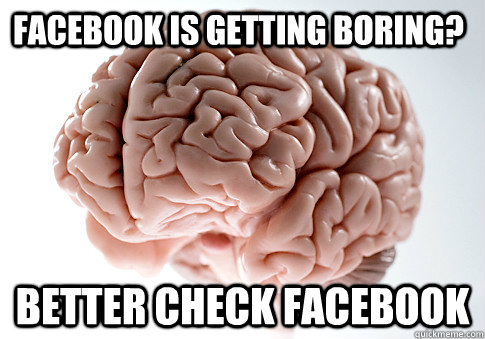Lambert and Frisch draw our attention to the fact
that there are increasingly better and more cost-efficient – if not free –
digital tools available for content mapping purposes, such as creating indexes for
documentary collections and that some are for recreational purposes, while
others are intended for experts.(1) When a platform like Pinterest is used recreationally
to catalogue product purchases, inspirational images and recipes, be not
mistaken, sales professionals pay close attention.(2) Marketers(3) and media publishers
(4) utilize Pinterest to hyperlink product images or links to articles (5) while
it provides meta data to corporations that are constantly accessing and leveraging
information about prospective clients.
Being personally involved in the contemporary arts,
I have had interactions with professional curators on a regular basis over the
years. I therefore completely sympathize with Peter Morin’s position on the
outright misuse and oversimplication of the terms “curator”, “curated by” and
“curating” in online literature. He objects to the reductionist use of the term
to casually describe the act of online scrapbooking, an embodiment of commodity
fetishism that benefits no one but the retailers (6). I have a similar quarrel
with the hijacking of the term “artisan” by the fast/processed food industries
(7).
At times I feel a certain “uneasiness,” which turns
into laughter, when I inadvertently come across some Pinterest boards of
friends or former colleagues, and a certain pleasure when I create my own
classification systems. I borrow the term “uneasiness” from Michel Foucault’s
seminal preface to The Order of Things:
An Archaeology of the Human Sciences, because it points to the
physiological/emotional reaction that one may have when coming across or
creating taxonomies.(8) As a long-term collector of many different types of
objects, I have organized a number of my collections in a fairly compulsive
manner (books, postcards, etc.) and attest that there is something of that kind of reaction that effectively
takes place. Taxonomies trigger a physical response, and Foucault’s preface
reminded me that they have an effect on the reader. The analysis of Foucault’s
text by Michael Duszat of Humboldt University of Berlin also makes important
observations to this effect, in particular with respect to heterogeneous
enumerations:
“One of the powerful
effects that heterogeneous enumeration can have: it provokes substantial
self-reflection, which, in an almost educational sense, can produce a
disturbing but also immensely rewarding reading experience.” (Duszat, 2012, p.
203) (9)
“Heterogeneous enumeration becomes
visible as a powerful literary device that can be employed to raise critical
questions about many of our present concerns about the production and
representation of knowledge and meaning, questions about rationality, order,
and the power of writing.” (Duszat, 2012, p. 214) (10)
There is also something ultimately existential
about list-making, as Georges Perec splendidly noted in Thoughts of Sorts.(11) Perhaps the appeal and popularity of
Pinterest can be explained in part by the type of aesthetic gratification it
brings its users (content creators) and readers, voluntary or accidental. The
question however remains how many of its users will take advantage of this
experience to engage in independent and reflective thinking about their own
list-making practice and whom it truly benefits?
References
(1)
Lambert, D. & Frisch, M. (2013).
“Digital Curation through Information Cartography: A Commentary on Oral History
in the Digital Age from a Content Management Point of View,” Oral History
Review, (1), 135.
(2)
Constine, J. (Feb. 2016). Image Recognition Invades Shopping As Curalate Raises
$27.5M”, Retrieved from: http://techcrunch.com/2016/02/02/profiting-from-pretty-pictures/
(3)
Hurley Hall, S. (Oct. 2014). How Successful Marketers Use Pinterest to Drive
Conversations (And How You can Too), Retrieved from: http://unbounce.com/social-media/how-successful-marketers-use-pinterest-to-drive-conversions/
(4)
Perez, S. (Sept. 2013). “Pinterest Appeals To Publishers With New Article Pins,
Pushes To Become A Bookmarking & “Read It Later” Service, Tech Crunch,
Retrieved from: http://techcrunch.com/2013/09/24/pinterest-ariticle-pins/
(5)
Ibid.
(6)
Morin, P. (Oct. 2011). An
Open Letter to Everyone Using the Word ‘Curate’ Incorrectly on the Internet.
Retrieved from http://aboriginalcuratorinresidence.blogspot.ca/2012/05/httphermitagemuseumwordpresscom20111004.html
(7)
Polis. C. (Oct. 2011). When 'Artisan' Means 'Industrial': How One Word's
Definition Has Been Overused And Abused, Retrieved from: http://www.huffingtonpost.com/2011/10/25/when-artisan-means-industrial_n_1031004.html
(8)
Foucault, M. (2005) The Order of Things [1966], Preface, p. xx, Retrieved
from: http://beautifuldata.metalab.harvard.edu/wp-content/uploads/2014/08/Foucault_The-Order-of-Things.pdf
(9)
Duszat, M. (2012), Foucault’s Laughter: Enumeration, Rewriting, and the
Construction of the Essayist in Borges’s ‘‘The analytical language of John
Wilkins’’, Orbis Litterarum 67:3 193–218
(10)
Ibid.
(11)
Perec, G. (2009). “Thoughts of Sorts”, translated by David Bellos.






